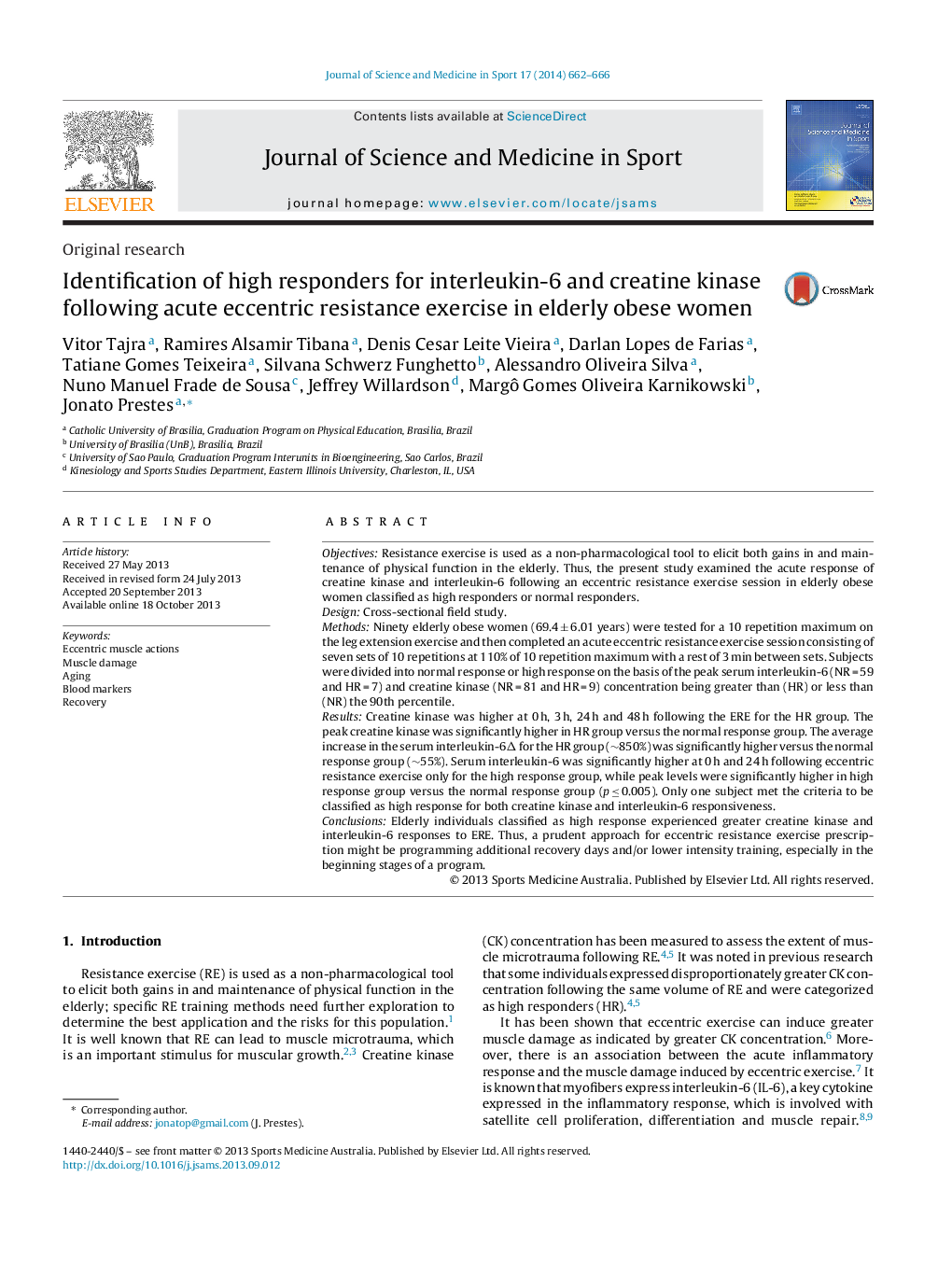| Article ID | Journal | Published Year | Pages | File Type |
|---|---|---|---|---|
| 2701423 | Journal of Science and Medicine in Sport | 2014 | 5 Pages |
ObjectivesResistance exercise is used as a non-pharmacological tool to elicit both gains in and maintenance of physical function in the elderly. Thus, the present study examined the acute response of creatine kinase and interleukin-6 following an eccentric resistance exercise session in elderly obese women classified as high responders or normal responders.DesignCross-sectional field study.MethodsNinety elderly obese women (69.4 ± 6.01 years) were tested for a 10 repetition maximum on the leg extension exercise and then completed an acute eccentric resistance exercise session consisting of seven sets of 10 repetitions at 110% of 10 repetition maximum with a rest of 3 min between sets. Subjects were divided into normal response or high response on the basis of the peak serum interleukin-6 (NR = 59 and HR = 7) and creatine kinase (NR = 81 and HR = 9) concentration being greater than (HR) or less than (NR) the 90th percentile.ResultsCreatine kinase was higher at 0 h, 3 h, 24 h and 48 h following the ERE for the HR group. The peak creatine kinase was significantly higher in HR group versus the normal response group. The average increase in the serum interleukin-6Δ for the HR group (∼850%) was significantly higher versus the normal response group (∼55%). Serum interleukin-6 was significantly higher at 0 h and 24 h following eccentric resistance exercise only for the high response group, while peak levels were significantly higher in high response group versus the normal response group (p ≤ 0.005). Only one subject met the criteria to be classified as high response for both creatine kinase and interleukin-6 responsiveness.ConclusionsElderly individuals classified as high response experienced greater creatine kinase and interleukin-6 responses to ERE. Thus, a prudent approach for eccentric resistance exercise prescription might be programming additional recovery days and/or lower intensity training, especially in the beginning stages of a program.
